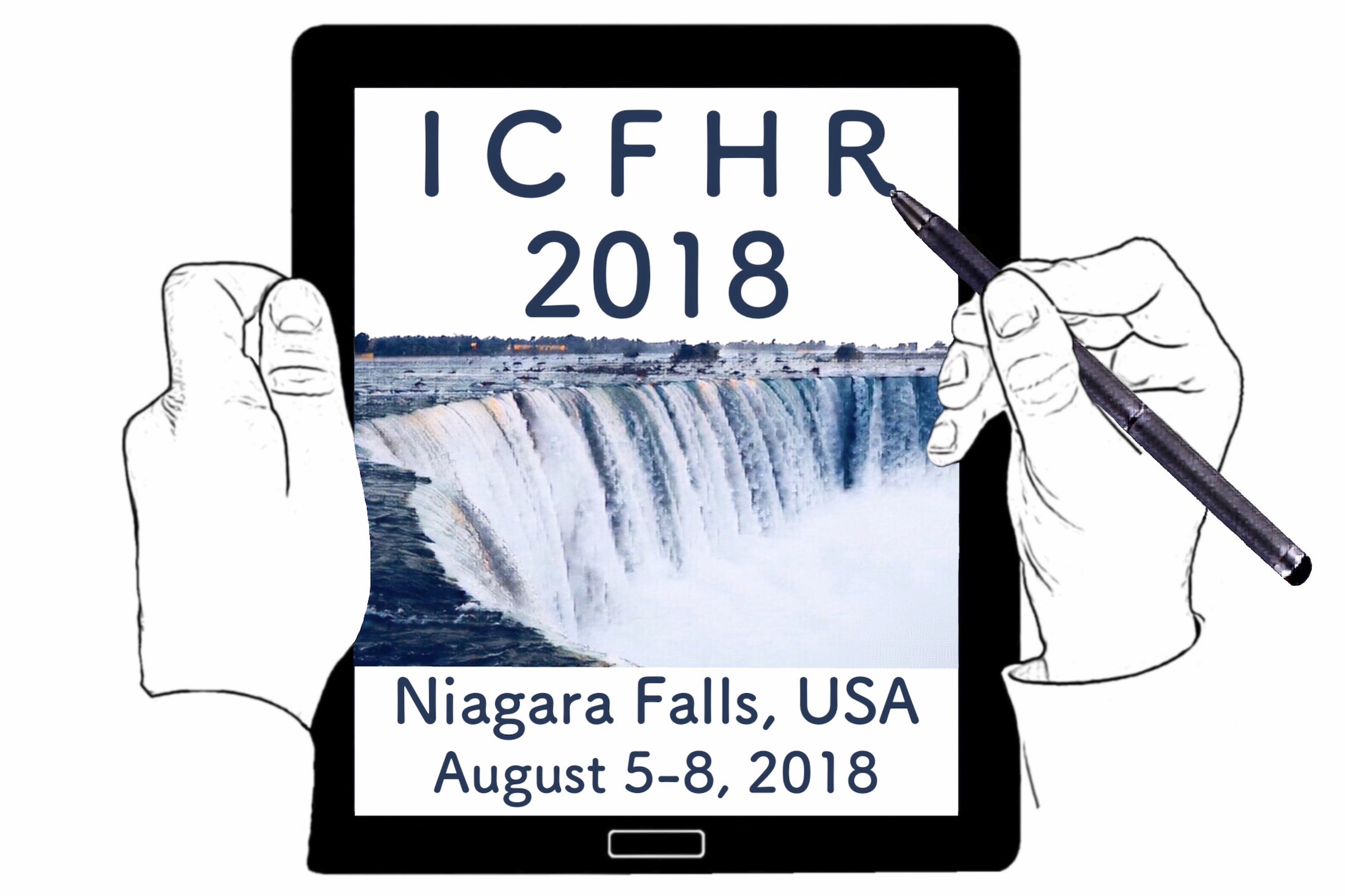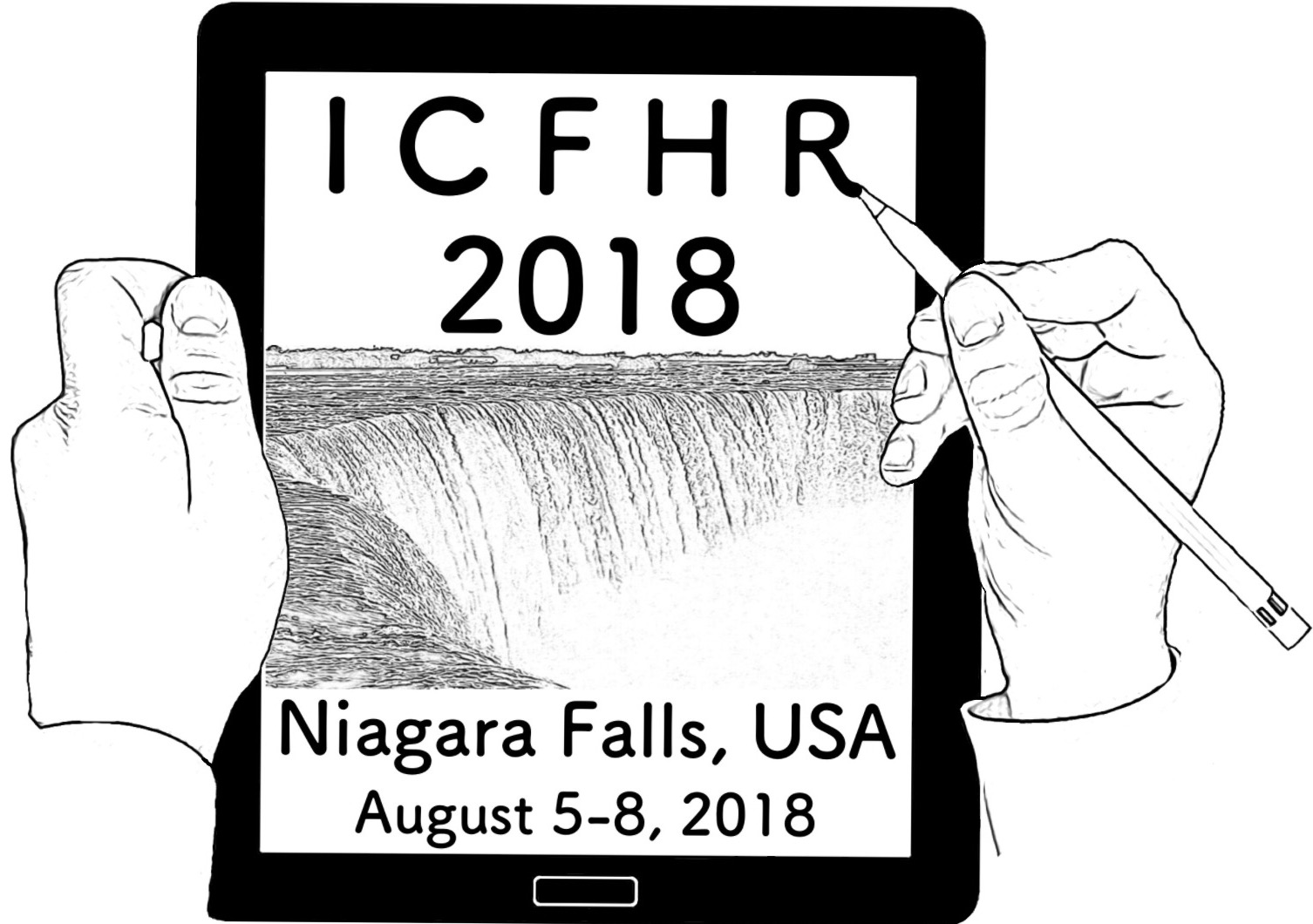
|
The 16th International Conference on
Frontiers in Handwriting Recognition August 5 - 8, 2018 ● Niagara Falls, USA
|

|
The 16th International Conference on
Frontiers in Handwriting Recognition August 5 - 8, 2018 ● Niagara Falls, USA
|
Tutorial: Forensic Document Examination
Date/Time: Sunday, August 5th 2018, 1:30pm – 4:30pm
Presented by: Timothy Campbell, BSc
Forensic Document Examiner (FDE), Canada Border Services Agency (CBSA), Ottawa, Canada
Contact: Timothy.Campbell@cbsa-asfc.gc.ca or FDExaminer@gmail.comBio sketch: Timothy Campbell, BSc is a Forensic Document Examiner (FDE) at the Canada Border Services Agency (CBSA) in Ottawa, Ontario since 2008. Mr. Campbell has a Bachelor of Science in biology and earth sciences from the University of Waterloo (1998), and conducted his Questioned Documents training at the Centre of Forensic Sciences (CFS) in Toronto, Ontario from 2001 to 2004. He is a member of the Canadian Society of Forensic Science (CSFS), an Associate Member of the American Academy of Forensic Sciences (AAFS), and is co-secretary for the AAFS Standards Board (ASB) Consensus Body for Forensic Document Examination.
Target audience: Any attendee of ICFHR who wishes to become better acquainted with the field of Forensic Document Examination with a view toward research. There are no prerequisite knowledge requirements.
Disclaimer: This tutorial does not give the attendee sufficient instruction such that they may conduct any actual forensic document examinations.
Course description: This tutorial will cover document examination from a forensic context in order to provide the pattern researcher with a better understanding of how a human conducts analyses.
A document is a deceptively simple means of conveying information across time and space, but is actually a living convergence of complex interactions that most people never fully understand. Forensic Document Examination (FDE) is the forensic discipline concerned with the analysis of evidentiary documents for investigative or court purposes. This tutorial is given by an experienced FDE to members of the pattern recognition community in order to give an in-depth look at what an FDE sees and must consider when rendering an opinion that can have a drastic effect on individuals' or groups of peoples' lives. Comparisons and contrasts between the approaches of the two realms will be discussed, as well as special issues that a forensic practitioner must contend with to operate in a legal context.
Handwriting is a skill that children are taught while young, copying basic letter forms from a copybook in school, everyone beginning in the same way, and diverging in skill and style over time, developing their own individual handwriting habit. A handwritten signature is a specialized piece of a person's handwriting. As a person writes their own name repeatedly, it can take on an appearance of its own, ranging from a skillful variant of their natural handwriting, to becoming highly stylized, bearing little resemblance to handwriting and instead morphing into an abstract personal mark. Digital signatures are becoming more commonplace in everyday commerce, but there are multiple ways to define a digital signature which can create some confusion.
An FDE must be trained in the multitude of ways in which a document, as received for examination, might have been produced. Traditional office technology, in use a century ago, to modern desktop methods as well as commercial techniques, through the same time span is all considered. Writing instruments and the inks they use have likewise evolved. Moreover, a document is not necessary mature after its initial production. The FDE does not assume that a document has not undergone unseen subsequent alteration, and searches for microscopic information that such changes have been made, illuminating their presence or absence.
Agenda
- Introduction to Forensic Document Examination (5 W’s)
- Attendee interaction (natural handwriting)
- Legal Issues
- Features of Handwriting
- Natural Variation
- Individual vs. Class Characteristics
- Discrimination Features for Handwriting Examination
- Offline vs. Online Signatures
- Non-Handwriting Considerations of Documents
- Expert Opinions and Conclusions
- Attendee Interaction (Disguised Handwriting)
- Attendee Interaction (Simulated Handwriting)
- Case Study
- Discussion and Wrap-up
| 
|